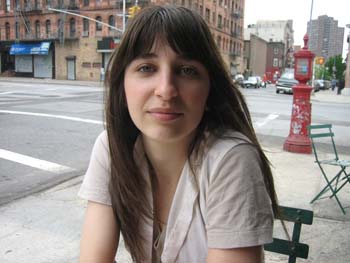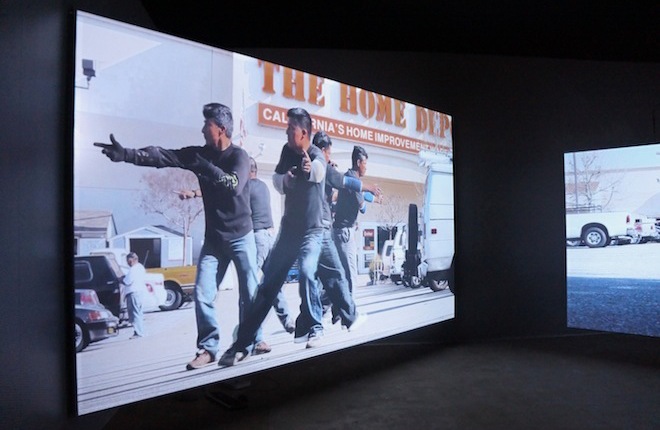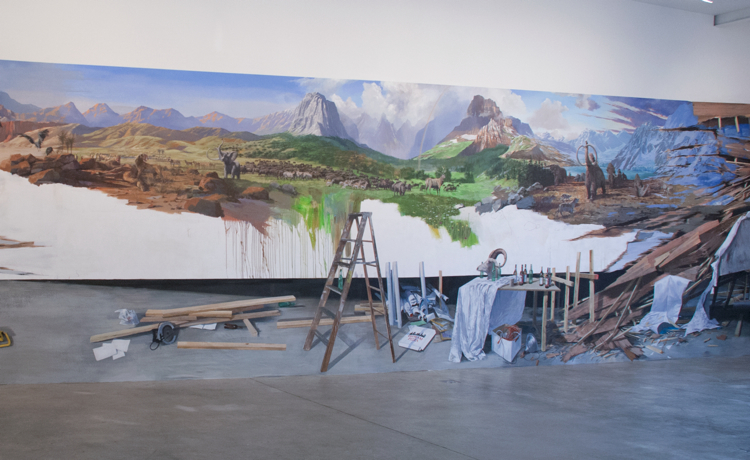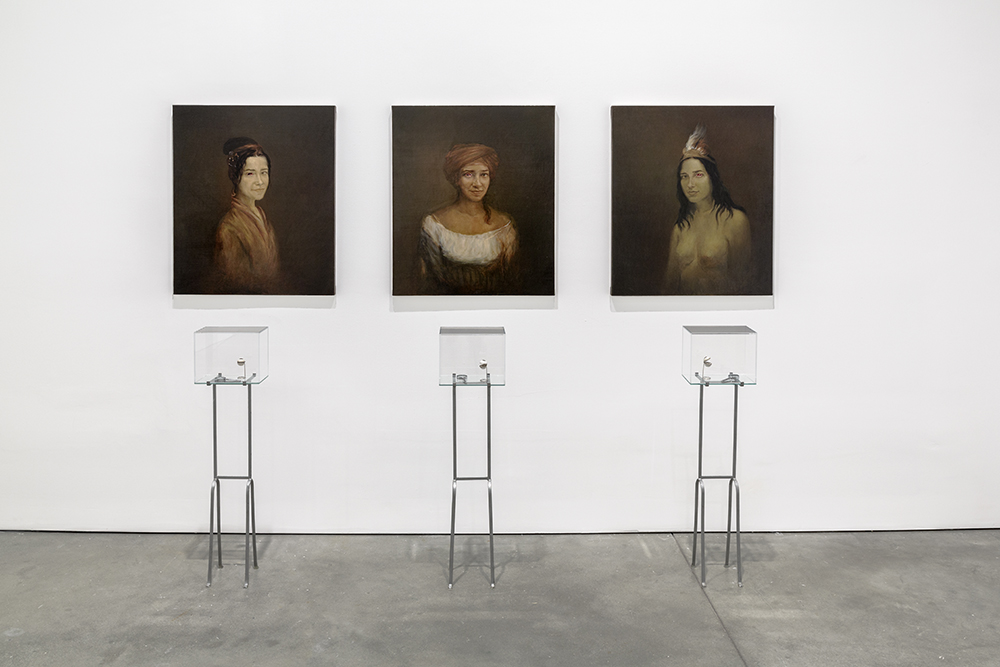By MATTHEW NASH
After nineteen months and twelve shows, Second Gallery will be closing this summer. Rebecca Gordon, the 23-year-old director of Second Gallery, will be heading off to Chicago for graduate school, and will be turning over the space to new leadership at the end of summer.
"In a way it seems a bit silly to close it now because it feels like it's just getting off the ground. Maybe so, but I feel that it is time for me to move forward and work on other things." Gordon said over lunch. "I'm giving the space to a new gallery run by Julia Hechtman, who is from Chicago. I solicited proposals for running a new gallery in the space, because the space is rent free. Second Street Associates, who runs The Distillery, has generously decided to donate the space to Julia's Hechtman's gallery, which will be called Proof."
When looking for an organization to replace Second Gallery, Gordon says that "there were a number of things I wanted. I really wanted to make sure that whatever it was kept moving forward with some of the goals of Second Gallery, in terms of showing video and installation art, and also having longer than normal down-times between the shows, to build something in the space. I was looking for something that supports an experimental and risk taking atmosphere."
During its run, Second Gallery drew a lot of attention and brought a wide range of artists from outside Boston, a fact that makes Gordon proud. Gordon says she drew a lot of support from the community, and the response to her programming. "The main thing that I want to take this opportunity to say is that I'm really grateful. I'm really amazed how receptive Boston was to me doing this. I didn't think, in a million years, that it would get on people's radar and that they would keep coming out to a neighborhood they probably don't come to a lot. In that sense, it was totally amazing. I just tried to consistently show the best work that I could, take chances, and experiment with new ideas."
Despite the amount of attention and support she received in Boston, though, Gordon does see that there are some problems with Boston's art scene. In this, she echoes many of the same concerns voiced by younger artists in the city, who cannot help look to our south. "I'm left thinking about Boston's relationship to New York, which seems to me to be unresolved. Boston needs to have a productive relationship with New York, because New York is a major center of the art world, and there is no way that Boston can ever compete with that. But on the other hand, Boston also needs to be a solid community that has an identity of its own and is not just a poor impersonation of New York. I have yet to see these two forces strike a good balance."
When asked whether she thinks artists in Boston are trying to ignore New York, Gordon points out "that Boston can tend to be sort of insular. It can tend to judge itself according to its own terms and its own artists, and would like to think that New York isn't really a big deal."
"In order for Boston to continue to have a critical mass of artists in it, and to attract more young people doing projects, and to have young artists stay here and want to be here, something has to change. Cities in close proximity to New York need to come into their own such that they have something that's different yet constructively related to art coming out New York."
What that "something different" might be, however, is an open question. When I point out that The Boston Cyberarts Festival is built on Boston's strong history of the convergence of art and technology, she acknowledges that technology has become a major part of Boston's identity, but that it is not necessarily the solution for all artists. "I think that if there is a niche for Boston, it may be Cyberarts and that art and technology connection. I have yet to be fully convinced by this approach. I am interested in strong work that utilizes technology because it is appropriate for what the project is, but not in the use of technology for its own sake."
"All I want is for artists, and people who work in the arts in Boston, is for this to be a good place for them to realize their ideas. When I started out, I had a lot of energy. We're going to do this! We're going to make Boston a great city for art! In the end, I think that may have been excessive. All I did was make a contribution to the best of my ability. On the one hand, running Second Gallery in Boston has been incredible because, when it first started I would get personal letters from people thanking me. People have been so supportive; they were really ready for something new here. There were tons of people at the first show, and we got a lot of press for many shows. If I'd done this in New York, nobody would have batted an eyelash. So in that sense, Boston made me able to make a bigger impact. The other side of this though, is that sometimes I felt like I was known as the weird gallery in Boston, which is crazy to me because in New York I would not be crazy at all, I would be rather traditional compared to a lot of the things that are happening there.
"So, in that sense, it's a really great place to get things going because people are ready and there is a market. Maybe not a commercial market, but an intellectual market. People are excited and ready, and in that sense I felt like I was making much more of a contribution here than if I had done it in New York."
The final shows at Second Gallery, Same Old by Brendan Harman and Same Old by Tyler Drosdeck, opened on June 9th, and runs through July 7th.
Image courtesy of Rebecca Gordon.




